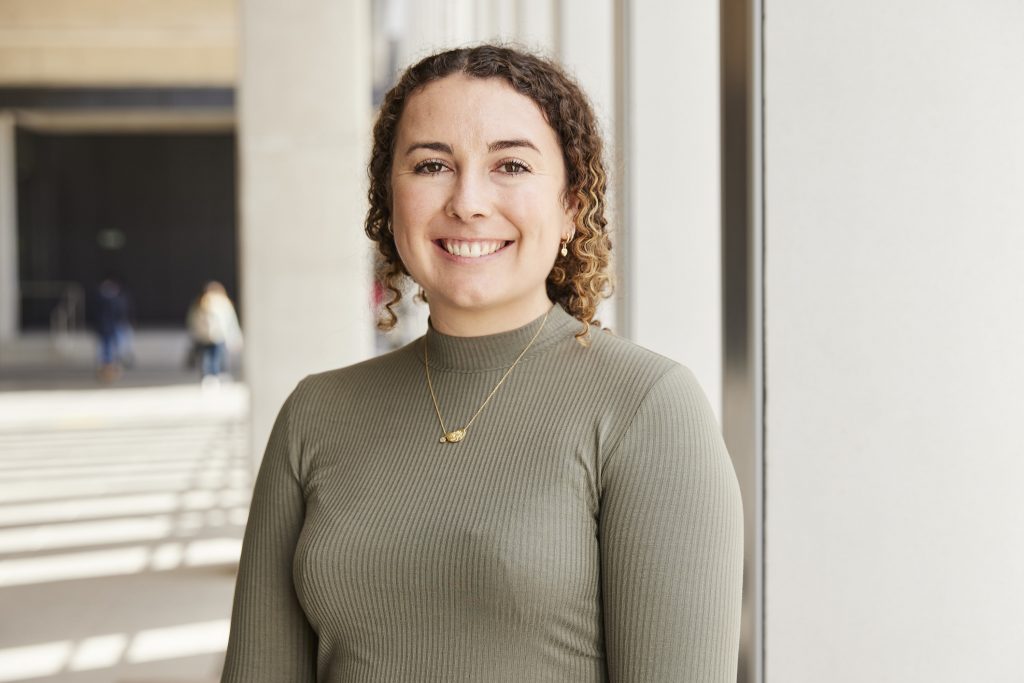By Charuni Pathmeswaran
Savannah Minihan is a Scientia PhD researcher exploring adolescent mental health and the development of novel digital prevention interventions. Savannah is an accomplished UNSW Woman in Maths and Science Champion and is keen to make an impactful change in the mental health space.
Can you briefly explain your current research?
My research broadly explores the cognitive, emotional, and social processes that influence mental health across the lifespan (particularly adolescent mental health). We use findings from this research to design novel mental health interventions. At the moment, we are developing a gamified cognitive training app, which we hope to get young people’s feedback on very soon.
What drew you to this field?
Psychology is such a diverse field. Working within psychology might involve working in a clinical practice environment, or it might involve working in a research team and conducting translational research to inform treatment practices, or even working within industry or government. I love that psychology can take me down diverse pathways and that it is a meaningful space to be in where I could make a difference.

What excites you most about your work?
I love the data analysis stage of my research. When you’ve gathered all your data from a research experiment and are finally able to look at your data and see what it is telling you. It’s quite exciting to see the results of your work and find something out for the first time. I also really love the translational aspects of my work – when you can see the direct impacts that it is having on other people. I find this really fulfilling.
What do you find most challenging about the work you do and how do you tackle it?
While data analysis is exciting, it can also be very challenging, especially when you are learning complicated analysis procedures that you have not encountered before. This can be quite overwhelming. However, I have come to realize that one of the reasons why I am doing a PhD is to learn new things – I am not expected to know everything, rather I can learn from others. So I am slowly getting better at asking for help!
What does a typical day look like for you?
At the moment it is a lot of desk-based work. This means reading the latest research articles, planning out an experiment, programming an experiment, collecting data, analyzing data, or writing up a manuscript. It depends on what stage of a project I am at; however, I usually have a couple of different projects on the go at once, so I find it helpful for motivation and engagement to be able to switch between different tasks.
What are your interests outside of science?
I really love traveling. I lived in the U.K. for a couple of years, between completing my undergraduate and starting my PhD. I was incredibly lucky to be able to visit many incredible places throughout Europe, experiencing so many different cultures and meeting lots of wonderful people along the way. I also love reading and going to the gym.

Words of advice for young women interested in pursuing a career in STEM?
Don’t let fear stand in your way. You can do whatever you set your mind to, you just have to start somewhere and give it a try. If an opportunity looks scary, take it up anyway because you never know what’s on the other side.
What are you most proud of in your career so far?
I am proud of myself for not letting fear get in my way. When I finished my undergraduate degree, I knew I wasn’t ready to go straight into a post-graduate degree. An opportunity arose for me to work as a research assistant at the University of Oxford for two years. The thought of moving overseas by myself for what seemed to be such a long time was really scary. But this decision turned out to be one of my best yet!
What would you like to see change in the future for women in STEM?
I would like there to be fewer gendered preconceptions about particular roles. I would like young women to feel that they can pursue any career that they are interested in, and not to be persuaded otherwise because a particular field is overly male-dominated.
To find out more about Savannah’s research, follow her on Twitter.